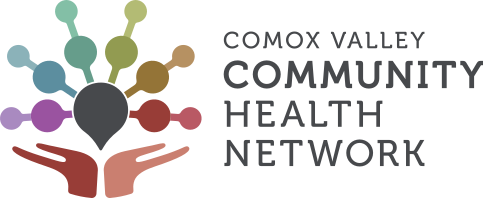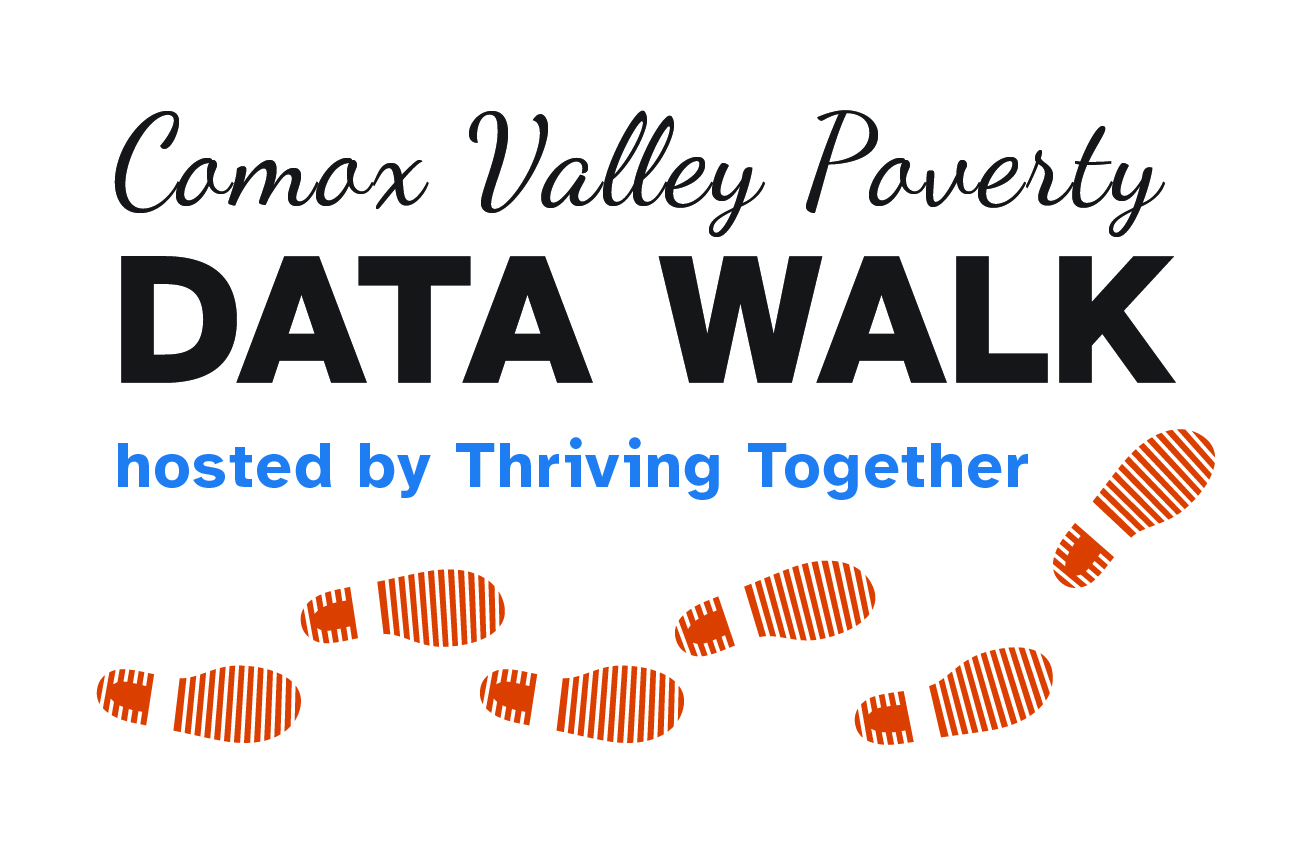The Comox Valley Poverty Data Walk aims to inform, create conversation and encourage community members to explore ways of reducing and eliminating poverty in our community. Poverty isn’t always visible, but the data is, and it tells a powerful story.
The outdoor Data Walk posters and indoor Virtual Data Walk (below) were officially open for viewing and feedback from August 1, 2025 to January 6, 2026. Currently, the reactions and feedback received are being organized and analyzed. Results will be summarized into a report that will be visible on this site in Spring 2026.
Although the window for feedback has closed, Data Walk posters can be viewed in the link below. Please register your email below to receive notifications about the Data Walk report and other poverty reduction resources and initiatives in the Comox Valley.
Poverty Reduction Resources for the Community
AHERO (Ad Hoc Emergency Resource Organization) publishes two guides for the Comox Valley community: Large AHERO Guide provides a comprehensive list of resources and support including: homelessness and risk of being unhoused, emergency/ crisis, employment, food, health care, legal, First Nations, Metis, Inuit and more. The Shorter AHERO Guide is a condensed, easy to print/ carry version of the larger one.
The Comox Valley Early Years Collaborative (CVEYC) helps reduce poverty by strengthening resources for families with young children, ensuring equitable access to services, and fostering collaboration among community partners. By raising awareness, hosting inclusive events like the Early Years Fair, and advocating for the early years community (including campaigning for affordable and expanded $10-a-day childcare), CVEYC works to create a stronger, more resilient community where no family is left behind. Learn more at https://cveyc.ca
Located at 1255 McPhee Ave., Courtenay, the Comox Valley Food Bank provides free and supplementary food to individuals and families throughout the Comox Valley. Services are barrier-free (all you need to register is picture ID), and are open to clients on Monday, Tuesday, Thursday, and Friday from 8:30 to1:00 PM. https://ComoxValleyFoodBank.ca
This society was formed in 1996 to promote social planning as a process to create a healthy and inclusive Comox Valley. This group provides support to local governments, community organizations and individuals in areas of equity, accessibility, living wage and support for marginalized populations, all of which are intended to reduce poverty. Some examples of work include: Support to the Regional Accessibility Committee; Hire people with Disabilities to conduct Accessibility Audits in the Comox Valley; Support Comox Valley local governments, organizations and businesses to develop policies through an equity lens; Calculate the Comox Valley Living Wage annually and encourage CV businesses to become Living Wage employers. https://cvsocialplanning.ca/
Hornby Denman Health offers a variety of services to support the health and wellbeing of islanders including mental health and substance use outreach and counselling and services to assist seniors to remain living in their own homes and community. All services are at no cost or on a sliding scale. https://hornbydenmanhealth.com
The IWC contributes to poverty reduction by providing free, client-centered support to immigrants and refugees as they settle and build their lives in the North Vancouver Island region. Through services such as English language support, information and referrals, and community engagement, they help to reduce systemic barriers and promote economic and social inclusion. “We envision a community that embraces diversity and inclusivity and where newcomers feel welcome, safe, and respected.” https://immigrantwelcome.ca
The IWSS addresses poverty by tackling its direct causes—trauma, substance use, and homelessness— through its Indigenous-led Unbroken Chain harm reduction program. The program saves lives, provides crucial case management and resource navigation for those experiencing deep poverty, and connects them to essential services like housing and health care. The Indigenous Women's Sharing Society (IWSS) is also the designated coordinator for the Comox Valley Substance Use Strategy (CVSUS) Collaborative. Ultimately, IWSS promotes long-term stability and healing by using cultural activities (like sharing and healing circles) to rebuild social connectedness and personal resilience. Indigenous Womens Sharing Society
LUSH Programs Include: Good Food Boxes, Fruit Tree and Farm Gleaning, Community Gardens, Community Kitchen Workshops, Healthy Student Meal & Hot Meal Programs (through Community Partnerships), and the Grow Food Everywhere group on FB. https://lushvalley.org or email: support@lushvalley.org
About the Data Walk Host – Thriving Together
Thriving Together, Comox Valley’s Poverty Reduction Table is an initiative of the Comox Valley Community Health Network (CVCHN) in partnership with the Comox Valley Regional District. This community-based collective impact group is made up of community members and representatives from local organizations, businesses and government, all with a shared vision of Comox Valley as a healthy, thriving, resilient community where the root causes of poverty are eliminated. This group supports collaborative action on initiatives that address the root causes of poverty in the Comox Valley, including implementation of the Comox Valley Poverty Reduction Assessment and Strategy. To find out more about Thriving Together, email info@CVCHN.ca or call CVRD’s Social Planning Coordinator at 250-334-6000.






